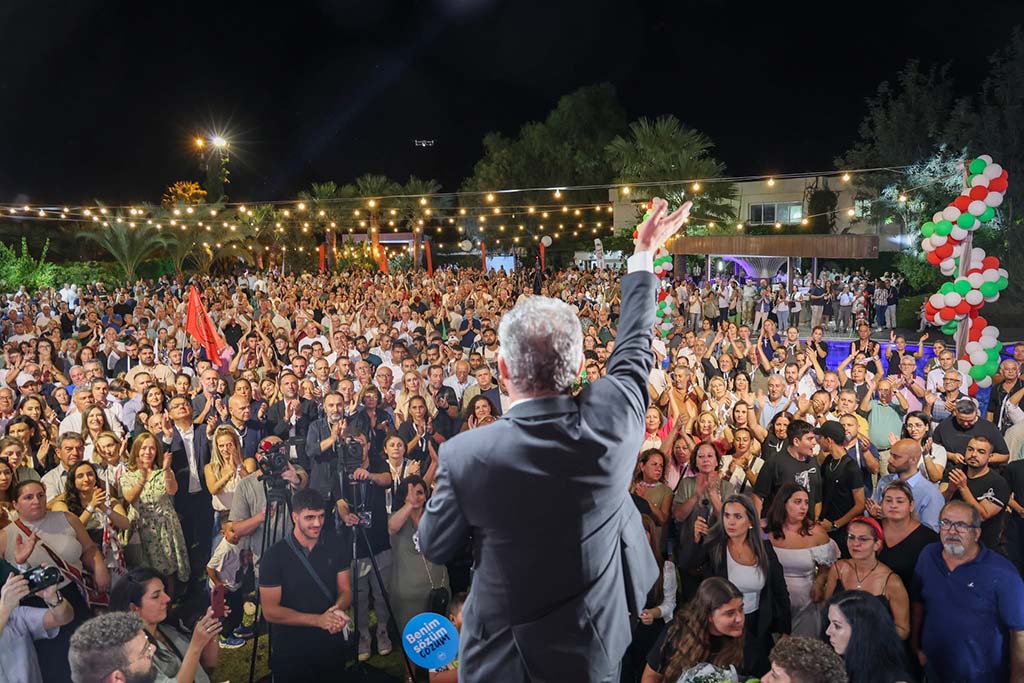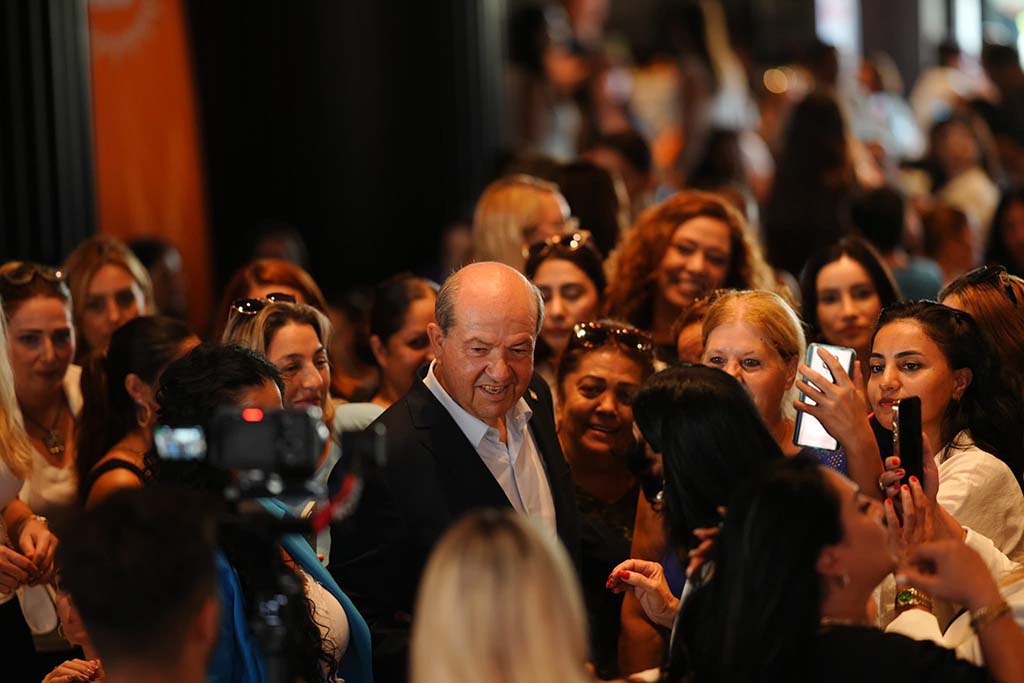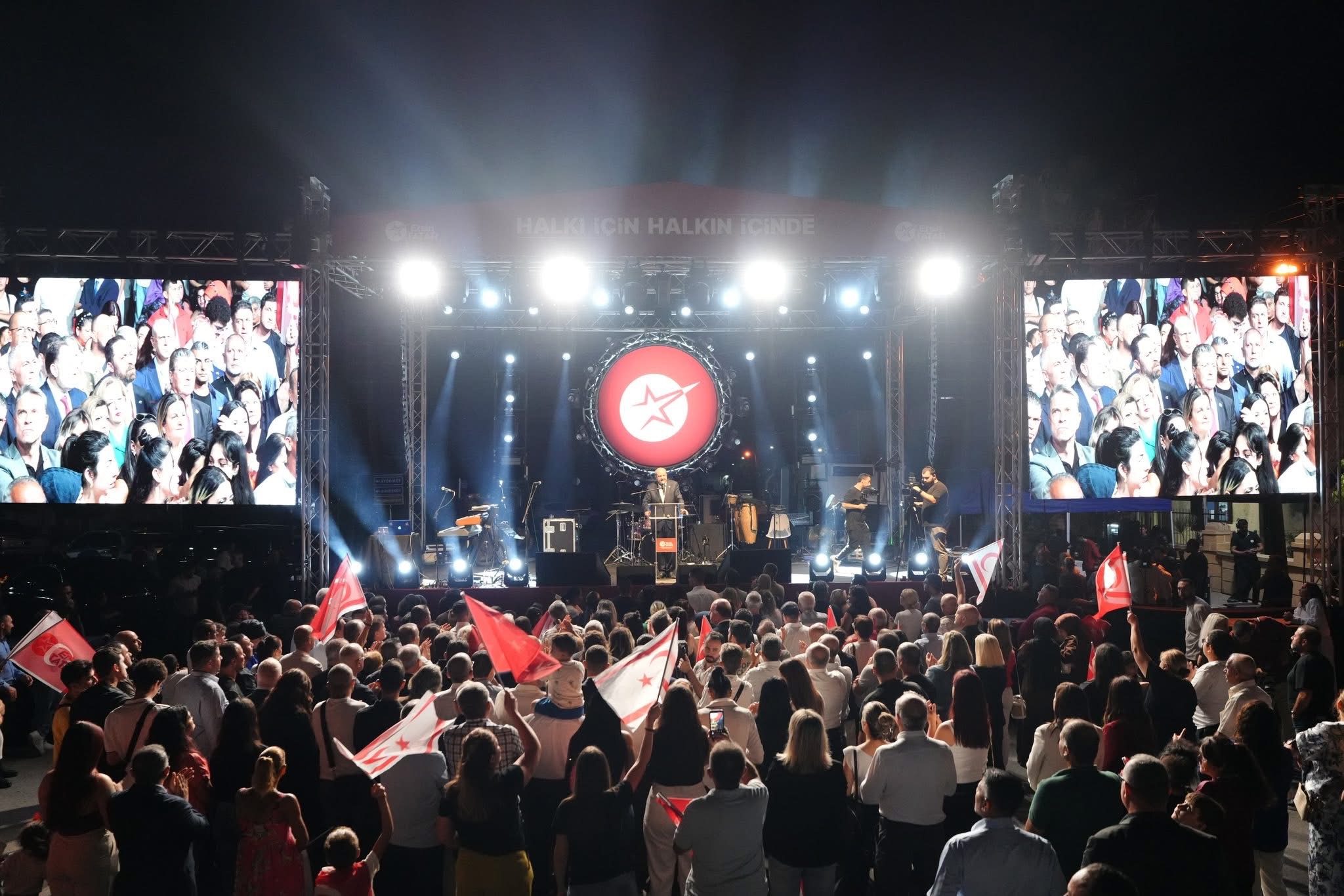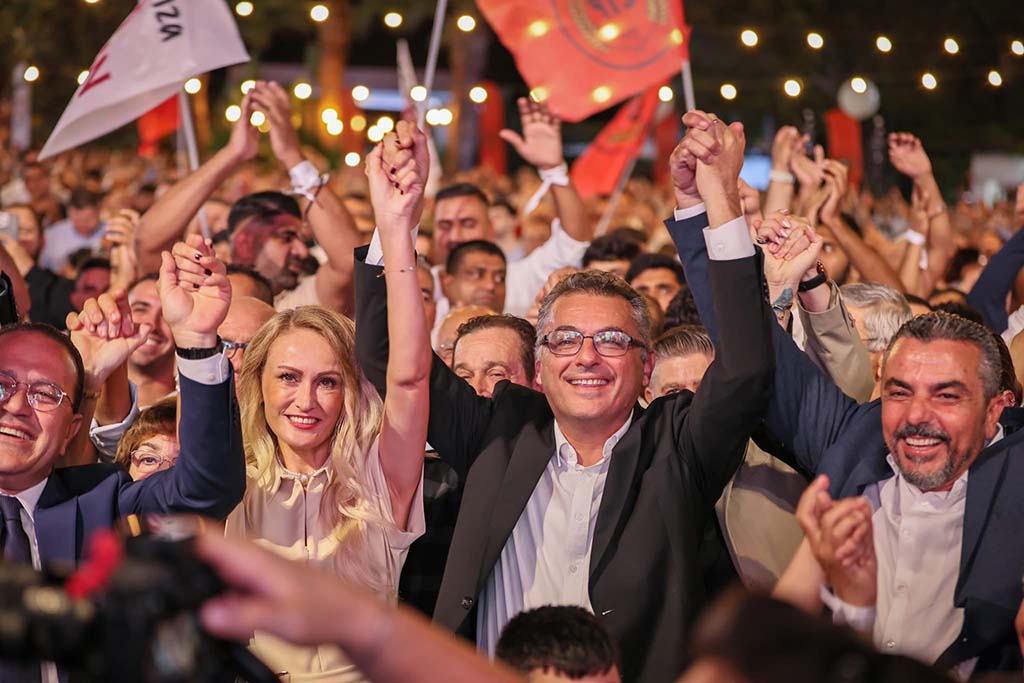Sunday will see Turkish Cypriots head to the polls to elect a leader for the 14th time overall, and for the ninth time since northern Cyprus’ unilateral declaration of independence in 1983.
A total of eight candidates will be on ballot papers up and down the island’s northern third, though there are two clear protagonists: incumbent Ersin Tatar and opposition-backed challenger the CTP’s Tufan Erhurman.
However, this time around, the election is not just a competition between two men, but a quasi-referendum between two models for a solution to the Cyprus problem, and two directions in which the Turkish Cypriot community could orientate itself going forward.
Tatar backs a two-state solution and has spent his five years in office demanding that the north be recognised as an independent country, and in this endeavour, he has won the backing of Turkey, which has itself spent the last half a decade demanding a two-state solution to the Cyprus problem.
“A solution based on a federation is no longer possible. I have been saying the same thing for 40 years. Even in magazines published in the 1980s, I defended the vision of a two-state solution,” Tatar told Kibris TV in a sit-down interview in the final days of the campaign.

Erhurman, meanwhile, advocates for a return to negotiations based on a federal solution to the Cyprus problem, as defined by United Nations resolutions, and as was the basis for previous near misses, such as the Annan plan in 2004 and the conference in the Swiss ski resort of Crans-Montana in 2017.
While he has not promised a solution to the Cyprus problem within a term in office, much of his campaigning has centred on a will to bring the Turkish Cypriot community closer to Europe and to the European Union.
A highlight in this sense was telling a rally of around a thousand people in Kyrenia in August that “every corner of this island will be Europe”.
“I swear and I promise, there will be no European south or Middle Eastern north on this island. Every corner of this island will be Europe. All young people, regardless of where they were born, will live together in a life worthy of human dignity. We do not accept inequality,” he said.
In the opposite corner, supporters both at home and abroad have thrown everything at their efforts to convince the Turkish Cypriot electorate that the idea of a federal solution is a thing of the past and that the only solution to the Cyprus problem is a two-state solution.
Those supporters abroad have included Turkish Vice President Cevdet Yilmaz, who made three separate trips to Cyprus during the course of the campaign with the aim of boosting Tatar’s chances of re-election.
As well as him, former Turkish ministers Suleyman Soylu and Hulisi Akar, opposition Zafer Party leader Umit Ozdag, and former footballer Mesut Ozil have all travelled to the island over the course of the campaign to declare their support for Ersin Tatar.
Additionally, Turkish President Recep Tayyip Erdogan ruled out any return to negotiations towards a federal solution to the Cyprus problem, regardless of who wins the election.
He also said that “no one can draw us back into talks for a federation with wordplay” after Erhurman had said during a televised interview that “all Turkey has said is that it supports Ersin Tatar’s vision for a two-state solution”.
These actions have drawn reactions from both Cyprus and Turkey, with Turkish Cypriot Nicosia mayor Mehmet Harmanci, who endorsed Erhurman, having described Ozil’s visit as “interference”, and described Ozil himself as a “model for the government’s public relations agency”.
Meanwhile, the Turkish opposition party CHP leader said his country must respect Turkish Cypriots’ will, whoever wins the election, and the party’s chosen candidate at the next Turkish presidential election, arrested Istanbul mayor Ekrem Imamoglu, said Turkey has a duty to respect what the Turkish Cypriots want.
The CHP notwithstanding, however, questions remain over how, if he were to win on Sunday, Erhurman would navigate relations with Turkey.
Relations with Turkey are vital but complicated for any Turkish Cypriot leader, but were a candidate to be elected after Turkey has been openly campaigning against him for most of the summer, the level of complicated may reach a new dimension.
For the relationship to be viable at all, one of either Erhurman or Turkey would have to backtrack on their preferred solution to the Cyprus problem, and may be required to do so quickly, given that the prospect of a third enlarged meeting on the Cyprus problem of the year is looming large, having been pencilled in for next month.
At home, the north’s ruling coalition, which has endorsed Tatar, attempted to throw another spanner into those works earlier this week, passing a resolution through ‘parliament’ demanding a two-state solution to the Cyprus problem.
‘Transport minister’ Erhan Arikli, one of the leading lights of the Tatar campaign, claimed after its passing that the ruling coalition now had the necessary legal tools at its disposal to thwart Erhurman from negotiating for a federal solution, and maybe even thwart him from representing the Turkish Cypriot community at all.
Erhurman rubbished this idea, and Turkish Cypriot Kyrenia mayor Murat Senkul, a member of Erhurman’s CTP, suggested that in passing such a resolution and declaring that it can be used to stand in Erhurman’s way, the ruling coalition has accepted that Tatar has lost the election.

That being as it may, polling has offered no clear picture of the election’s direction of travel. A poll conducted by CMIRS at the start of the month gave Erhurman a 10-per-cent lead, though others have offered much closer results, and some have put Tatar ahead, though one such poll was later declared “misleading” by the Turkish Cypriot media ethics board.
A Tatar victory would also raise questions, meanwhile, given that in his five years in office so far, his demands for a two-state solution to the Cyprus problem have borne no fruit.
Turkey aside, the north remains unrecognised internationally.
Even Turkey’s closest ally Azerbaijan, free of the shackles of the Karabakh problem after retaking the former breakaway region in the country’s west, which was described by Tatar’s predecessor Mustafa Akinci as the primary reason for the country’s non-recognition of the north, by force early in Tatar’s term, has not budged.
Other Turkic states, meanwhile, such as Kazakhstan, have instead opted to open diplomatic relations with the Republic of Cyprus, while four Turkic states – Kazakhstan, Kyrgyzstan, Turkmenistan, and Uzbekistan – signed a joint declaration with the EU declaring that they will never recognise the north as an independent country.
In response to these developments, Tatar promised to engage in “attack diplomacy” if given a second term in office. Days after announcing this plan, he attended a tripartite meeting with United Nations Secretary-General Antonio Guterres and President Nikos Christodoulides, who accused him of being “aggressive” – something he later denied.

Were he to win Sunday’s election, Tatar would join only the Republic of Cyprus’ founding vice president Dr Fazil Kucuk and Rauf Denktash on a very short list of the only Turkish Cypriot community leaders who have won re-election as incumbents.
Those who followed Denktash – Mehmet Ali Talat, Dervish Eroglu, and Mustafa Akinci – only lasted a single term each before being removed from office.
Tatar was the beneficiary of the trend of incumbents being unseated last time out, beating Akinci by an eventual margin of 52 per cent to 48 per cent in the election’s second round.
A second round is unlikely this time around, given that there are only two candidates expected to win a serious number of votes, but should neither Tatar nor Erhurman achieve 50 per cent plus one vote, another election will be held involving only the two of them next Sunday. This Sunday, polls will be open between 8am and 6pm, with results expected at around 8.30pm.






Click here to change your cookie preferences